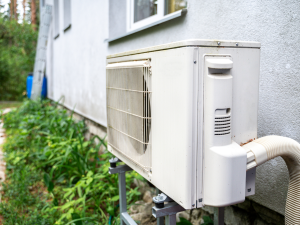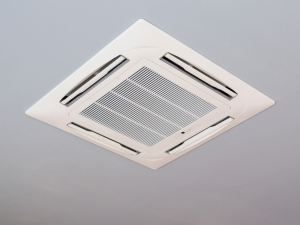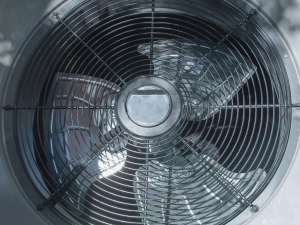Air conditioning systems come in all manner of types. Deciding which one to purchase can be a hard nut to crack. All air conditioners have similar working components including a compressor, a refrigerant, an expansion valve, condenser coils and evaporator coils. However, they differ based on the basic principles by which they operate. When choosing an air conditioning system, various factors should be considered. For instance: the size of the area you want to be cooled, the cost, and the heat generated in the area are just some of the factors that you should consider.
Here are the different types of air conditioning systems
1. Central air conditioner
This is the best air conditioning system for cooling a large home or multiple rooms simultaneously. This system regulates air through a split system that uses a combination of two main units. The central air conditioner also uses a refrigerant to remove heat from the indoor air and pushes it through the ducts. Its indoor unit comprises the air handler and evaporator coils while the outdoor unit comprises the compressor and the condenser.
With the central AC system, you get to cool all the rooms quickly while also reducing humidity in the house. A less desirable element is that a lot of energy is consumed, leading to hefty bills. Also, if a duct problem arises, the system can become ineffective, not forgetting it’s difficult to hide the system in your backyard. This can ruin a home’s aesthetics. To avoid this, you can schedule an appointment with a professional ac technician.
2. Window air conditioner
Window air conditioning systems are perfect for someone looking to cool a small area or a single room. Available in different sizes, you get the option for small, medium or large window air conditioners. However, a large window conditioner can even cool a small home or a large open area. With all components enclosed inside, window conditioners eject heat out of the outdoor side. Cool air is then blown into the room via the indoor side. While it is commonly installed in a window, it can still be installed in the wall.
Window air conditioning systems are preferred for cooling small spaces given that they are simple to install, take up less space, and are cheaper, and you can’t forget the ease of maintenance. However, you will deal with noise when the system is operating. This can be a disadvantage when you want your quiet time during the summer. They also obscure views from a window and are also visible from outside the house.
3. Floor mounted air conditioning system
For this style of AC, the indoor unit of the AC unit rests on the floor. They can be installed without major preparation or ductwork. They are perfect for areas that lack mounting space as well as areas with tilted walls such as buildings constructed with glass.
They are perfect for people who are very specific about the quality of air in a room such as the elderly or people suffering from respiratory conditions. The ease of installation is also a major plus not forgetting that they take up less space. However, they can barely function well in large rooms. Also, airflow may be compromised due to obstacles in a room such as appliances.
4. Ductless mini-split air conditioning systems
The ductless mini-split air conditioning systems provide cooling solutions without the need for ductwork. They are efficient for cooling a portion of a home or one room. This system uses a combination of a condenser that comes with an indoor unit (s) and an outdoor unit that comprises a compressor. The units are connected through tubing that allows the refrigerant to circulate. They can either be mounted on walls or ceilings.
Compared to other types of air conditioners, they are energy efficient. They are also easy to install and help regulate the temperature in each room. However, one system cannot be used to cool several rooms or large homes. Though small, it is also visible and can interfere with the style of a home.
5. Portable air conditioning systems
This is a free-standing air conditioning unit that can be moved from one location to another. All its components are enclosed and only require a power outlet to power it up. A portable AC can either be a single hose or a dual hose. Single hose air conditioners work by taking air from inside and expelling it outside while dual hose ACs use one hose to pull outdoor air which cools the compressor and is then expelled outside using the other hose. Portable ACs should also be placed in an area with access to a window for output air to be removed using the funnel. They are also perfect as a temporary cooling system or for use in places where it’s difficult to install a different type of air conditioning system. Smaller versions can even be used in bathrooms.
Portable ACs are simple and quick to install, can be moved around and are perfect for spot cooling. However, they are noisy and cannot cool a large room.
6. Hybrid/ Dual fuel air conditioning system
These use the combination of an electric air source and a gas furnace to operate. The system switches from using fossil fuels to electricity based on the outdoor temperatures programmed to make the switch. When it’s hot, the system pulls warm air from inside and dispels it outside.
This system is energy efficient. It also has a lower carbon footprint. However, it is expensive to set up.
What factors should you consider when choosing an air conditioning system?
- Your budget- Most people use this as their primary consideration when choosing an air conditioner. However, always ensure you opt for one that will serve your purpose. For instance, purchasing a ductless mini-split air conditioning system for a large house will not serve you well, despite the affordability.
- Cooling power– Purchasing an air conditioning system with higher cooling power is preferred if you are using it in a large home. However, if you only intend to use it in a small room, then one with low cooling power will work just well.
- Energy consumption– You do not want to pay high utility bills for something that you can control. Always go for an energy-efficient air conditioner. The higher the energy efficiency ratio, the more efficient the system is.
- Just how much space do you have? – Your air conditioning system should not occupy a large space in your house. For instance, if your window air conditioner is blocking the entire window, then consider purchasing a smaller one or installing a different type.




